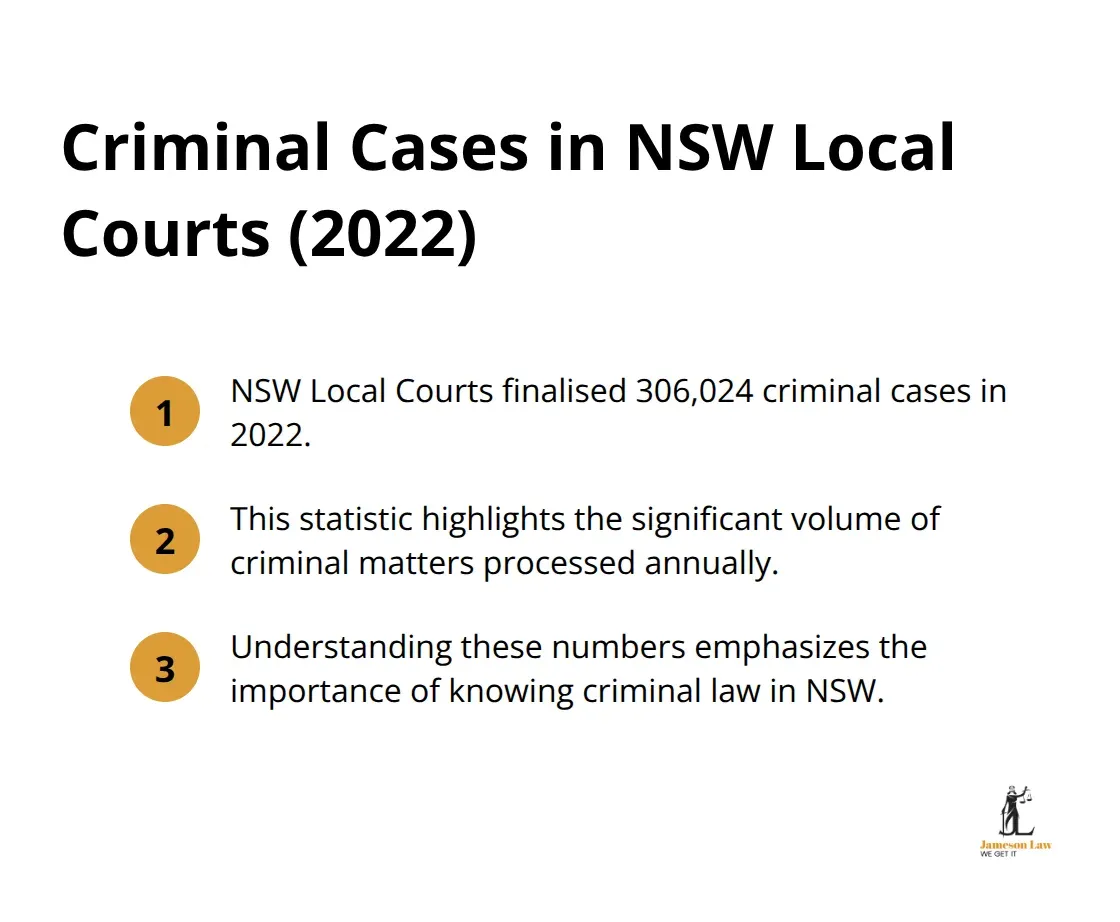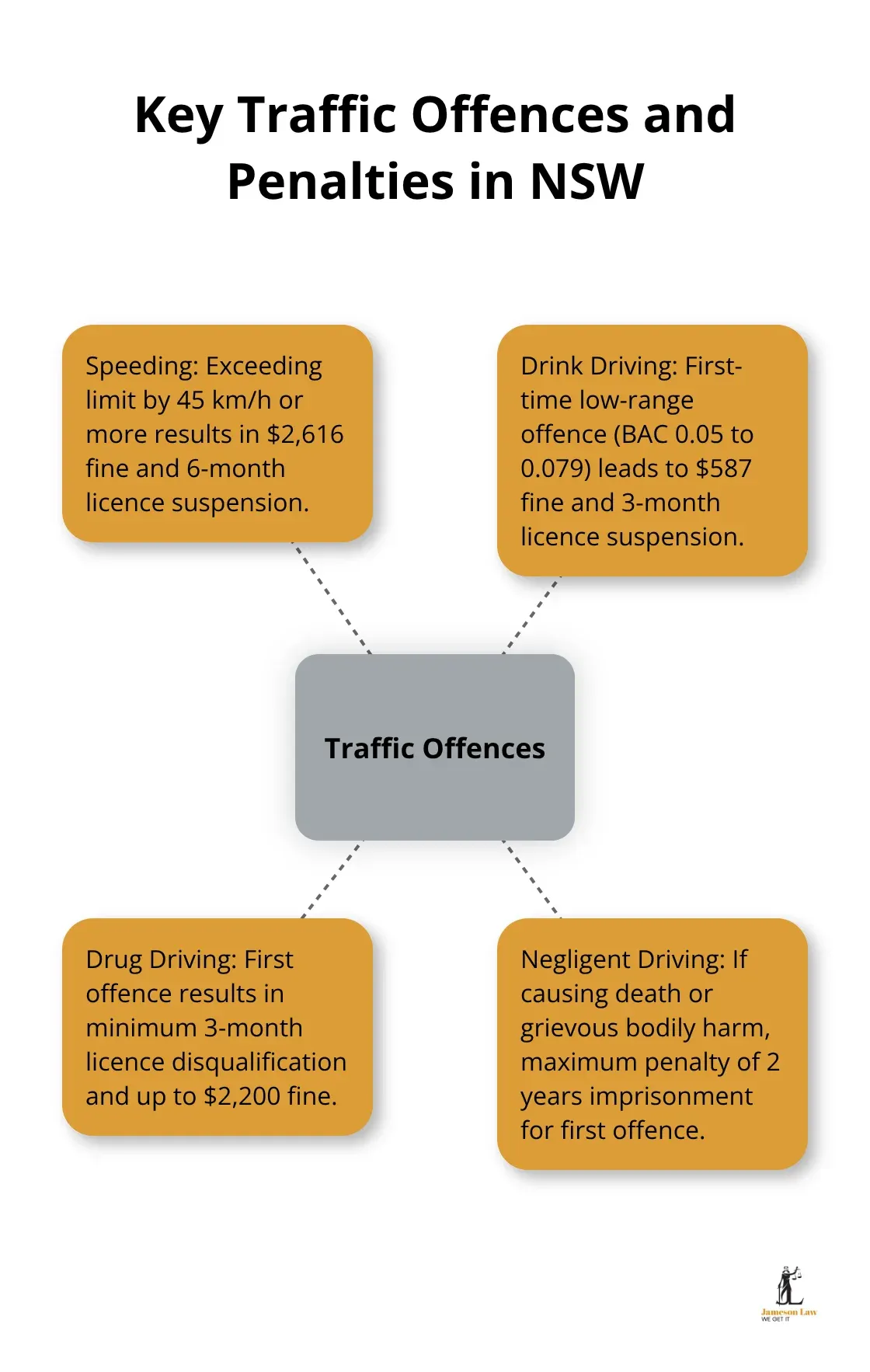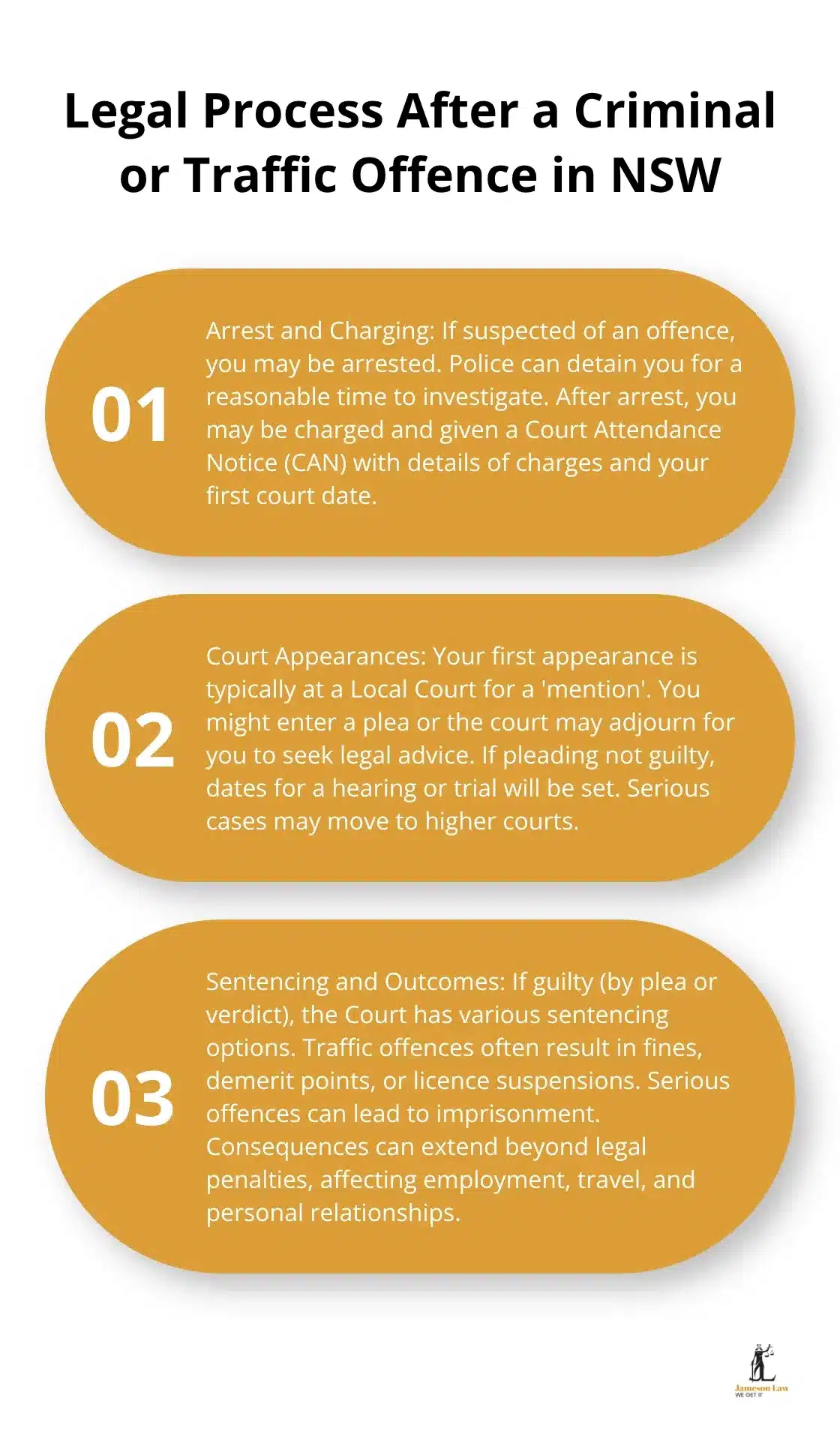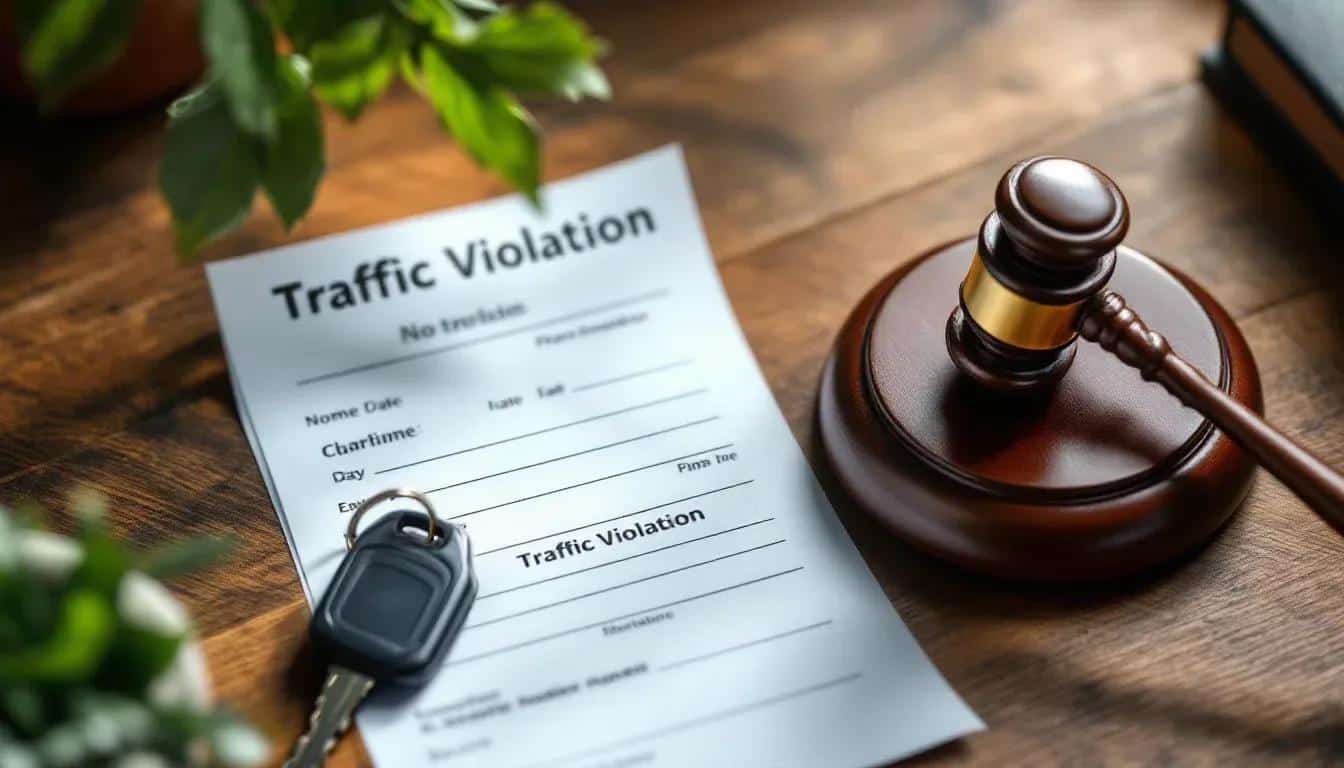Criminal and traffic law can be complex and confusing for many people, yet understanding the rules is vital for anyone living in or visiting New South Wales.
At Jameson Law, we’ve seen how a lack of knowledge about criminal and traffic offences can lead to serious consequences. This guide breaks down key aspects of NSW law so you can navigate the legal landscape with confidence. For immediate help in Sydney, call (02) 8806 0866 or contact us.
What Is Criminal Law in NSW?
Criminal law in NSW forms a system that maintains public order and safety. It defines offences against the state and sets out consequences for those who break the law under legislation such as the Crimes Act 1900 (NSW) and related statutes.
Types of Criminal Offences
NSW criminal law covers a wide range of offences, including:
- Violent crimes such as assault, robbery and homicide
- Property crimes such as theft, burglary and vandalism
- Drug offences including possession, supply and trafficking
- White-collar crimes such as fraud, embezzlement and money laundering
Severity varies significantly. Minor shoplifting may result in a fine, while armed robbery can lead to lengthy imprisonment. Sentencing principles are outlined in the NSW Sentencing Bench Book.
Rights of the Accused
If you are accused of a crime in NSW, you have specific rights:
- The right to remain silent
- The right to legal representation
- The right to a fair trial
Use these rights wisely. Many people unintentionally incriminate themselves by speaking to police without advice. Our guide on what to do if you’re caught explains next steps.
Legal Process for Criminal Offences
The criminal process in NSW typically involves:
- Arrest and charging
- Bail application
- Local Court mentions and directions
- Hearing or trial if you plead not guilty
- Sentencing if found guilty or on a plea
Penalties range from fines and community corrections to imprisonment. Procedure and listings information is available from NSW Local Court.
Statistics and Trends
In 2022, NSW Local Courts finalised hundreds of thousands of criminal matters. The volume highlights why clear advice and preparation matter.

If you are charged, seek early advice from our criminal defence team.
Traffic Offences in NSW: Penalties and Consequences
Traffic offences carry serious implications. From heavy fines to licence suspensions, the consequences can affect your work and daily life.
Major Traffic Offences and Their Penalties
NSW law classifies various major offences. Speeding penalties scale with speed over the limit. Transport for NSW sets out current rules and penalties here: Speeding in NSW. Exceeding the limit by more than 45 km/h attracts one of the highest fine and suspension categories.
Negligent driving that causes death or grievous bodily harm can carry imprisonment for a first offence. Our overview of negligent driving explains the elements and defences.
Drink and Drug Driving Laws
Drink driving laws are strict. Unrestricted licence holders must remain under 0.05 BAC, while learner, provisional and certain professional drivers must be zero. Penalties depend on BAC and history. See our Sydney-focused guides to drink driving and drug driving.
Drug driving is an offence where a prescribed illicit drug is detected in oral fluid, blood or urine. Transport for NSW explains the scheme: Drug driving in NSW.

Demerit Points and Licence Suspensions
NSW uses a demerit point system. Full licence holders can accrue up to 13 points in three years before suspension, P2 drivers 7 points and P1 drivers 4 points. Check your status and thresholds at Service NSW – Demerit points.
Double demerit periods operate around certain holidays. See Double demerits. If you receive a suspension notice, read our guide on driving whilst suspended and options such as appeals.
Traffic convictions can also affect insurance premiums. See NRMA’s overview of how traffic offences affect insurance.
What Happens After a Criminal or Traffic Offence?
The steps after an alleged offence can feel overwhelming. Understanding the sequence helps you respond calmly and protect your position.
Arrest and Charging
If police suspect an offence, they may arrest and detain you for a reasonable time to investigate. Review your rights at LawAccess NSW and NSW Police. Exercise your right to silence and get advice before any interview.
If charged, you will receive a Court Attendance Notice (CAN) with your first court date. Keep it safe and share it with your lawyer. See our primer on what happens in criminal matters.
Court Appearances
Your first appearance is usually a Local Court mention where the matter is managed and directions are made. Serious offences can be committed to the District or Supreme Court. Court locations and daily lists are on the NSW Online Registry.
Sentencing and Outcomes
If you plead guilty or are found guilty, the court has a range of sentencing options, including Conditional Release Orders, fines and imprisonment. Our pages on sentencing in NSW and traffic penalties explain what to expect.
Speeding fines alone amount to significant revenue each year, with school zones attracting higher scrutiny. See insights on trends from BOCSAR and road safety updates from the NSW Centre for Road Safety.
Legal Representation
Good representation can shape outcomes. We assess the brief, negotiate with police prosecutors and the DPP where appropriate, and present mitigation. If you need general guidance before engaging a lawyer, visit LawAccess NSW.
Potential Consequences
Consequences extend beyond the courtroom. A criminal record can affect employment and travel. Licence loss impacts work and family life. If fines are a concern, see ASIC’s Moneysmart tips for fines.

Final Thoughts
Criminal and traffic law shape everyday life in NSW. Breaking the rules can mean fines, licence loss or prison, and can affect work, travel and relationships.
Early advice makes a real difference. Our Sydney team at Jameson Law focuses on clear strategy, strong advocacy and practical outcomes across criminal and traffic matters. For a confidential consultation, call (02) 8806 0866 or send an enquiry today.













